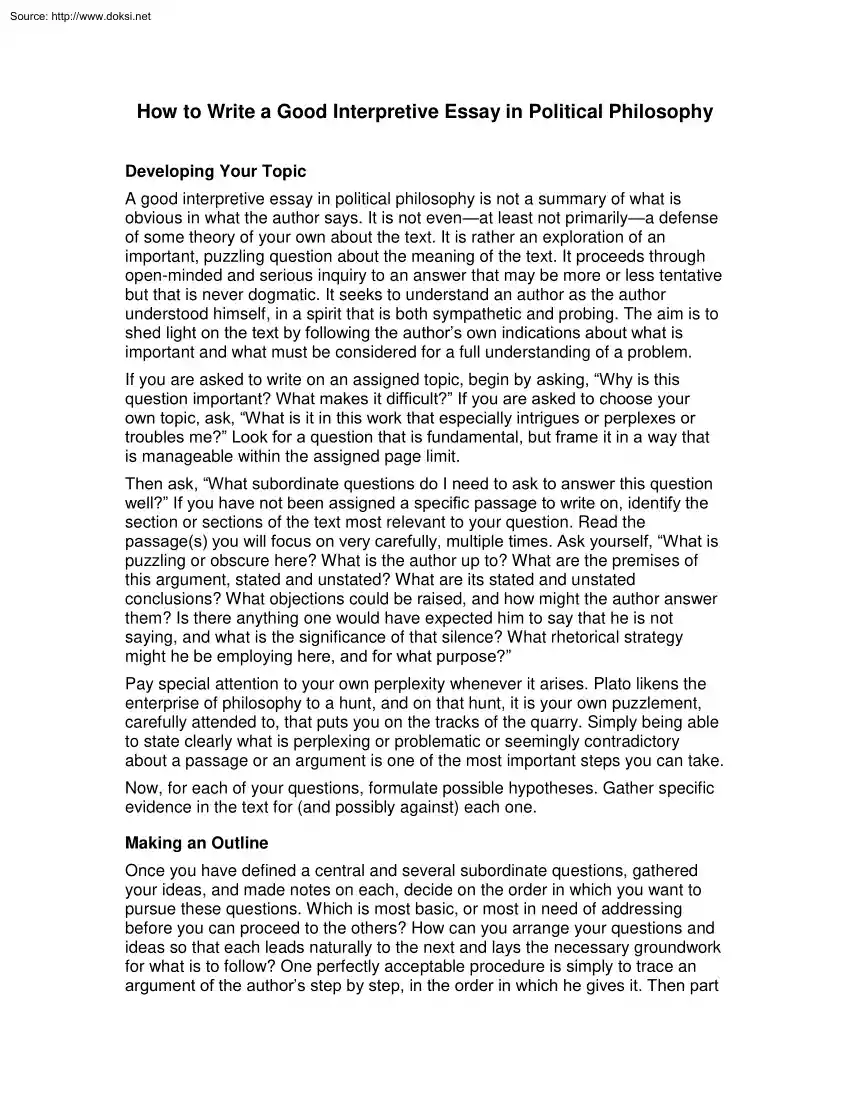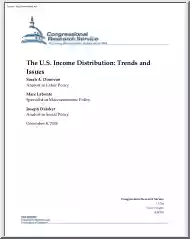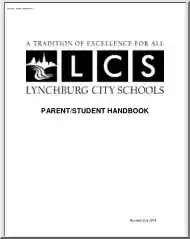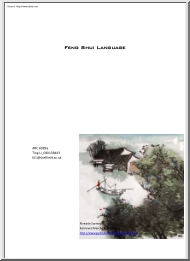Please log in to read this in our online viewer!

Please log in to read this in our online viewer!
No comments yet. You can be the first!
What did others read after this?
Content extract
Source: http://www.doksinet How to Write a Good Interpretive Essay in Political Philosophy Developing Your Topic A good interpretive essay in political philosophy is not a summary of what is obvious in what the author says. It is not evenat least not primarilya defense of some theory of your own about the text. It is rather an exploration of an important, puzzling question about the meaning of the text. It proceeds through open-minded and serious inquiry to an answer that may be more or less tentative but that is never dogmatic. It seeks to understand an author as the author understood himself, in a spirit that is both sympathetic and probing. The aim is to shed light on the text by following the author’s own indications about what is important and what must be considered for a full understanding of a problem. If you are asked to write on an assigned topic, begin by asking, “Why is this question important? What makes it difficult?” If you are asked to choose your own topic, ask,
“What is it in this work that especially intrigues or perplexes or troubles me?” Look for a question that is fundamental, but frame it in a way that is manageable within the assigned page limit. Then ask, “What subordinate questions do I need to ask to answer this question well?” If you have not been assigned a specific passage to write on, identify the section or sections of the text most relevant to your question. Read the passage(s) you will focus on very carefully, multiple times. Ask yourself, “What is puzzling or obscure here? What is the author up to? What are the premises of this argument, stated and unstated? What are its stated and unstated conclusions? What objections could be raised, and how might the author answer them? Is there anything one would have expected him to say that he is not saying, and what is the significance of that silence? What rhetorical strategy might he be employing here, and for what purpose?” Pay special attention to your own perplexity
whenever it arises. Plato likens the enterprise of philosophy to a hunt, and on that hunt, it is your own puzzlement, carefully attended to, that puts you on the tracks of the quarry. Simply being able to state clearly what is perplexing or problematic or seemingly contradictory about a passage or an argument is one of the most important steps you can take. Now, for each of your questions, formulate possible hypotheses. Gather specific evidence in the text for (and possibly against) each one. Making an Outline Once you have defined a central and several subordinate questions, gathered your ideas, and made notes on each, decide on the order in which you want to pursue these questions. Which is most basic, or most in need of addressing before you can proceed to the others? How can you arrange your questions and ideas so that each leads naturally to the next and lays the necessary groundwork for what is to follow? One perfectly acceptable procedure is simply to trace an argument of the
author’s step by step, in the order in which he gives it. Then part Source: http://www.doksinet of your work is to show why the order makes sense, and why each of his questions naturally arises from what has come before. Now fill out your outline with the arguments and evidence from the text that you will use to address each question. As you do so, you will probably realize that the order needs revising. That is not a problem; it is part of the process of good writing. You may also realize that you have taken on too much for a short, tightly focused paper, and you need to jettison some material. Again, this is a common discovery for disciplined writers and is not a sign that you have done anything wrong. Choosing a Title It should be immediately clear from your title what the paper will be about. If your professor has given you several prompts to choose from, the title should make clear which one you are writing on. A clever, attention-grabbing title is good if you can think of
one that also makes your topic clear, but the important thing is that the title be informative. The Introductory Paragraph This paragraph has serious work to do. It needs to show three things: what you are setting out to explore, why it matters, and why it is puzzling or difficult. You may also wish in other ways to set the stage or give background information, but the main task is to whet your reader’s interest. Nothing is more boring than the sweeping generalizations and dictionary definitions with which inexperienced writers often begin essays. It is true that reading your essay is part of your professor’s job, but you want him or her to begin your paper in a spirit of intrigued anticipation rather than one of gloomy resignation. The Flow of Paragraphs and Ideas Stating the point of each paragraph ahead of time in a topic sentence can make for a wooden effect, but every paragraph needs to have a single subject, and that subject needs to be clear by the end of the second sentence
if not the first. Each paragraph, and each sentence within the paragraph, should flow naturally out of what comes before and prepare the reader for what is coming next. Make liberal use of connective words and phrases as signposts to alert the reader to the direction in which your argument is moving. If you are qualifying a previous point, use expressions such as “yet,” “but,” “still,” “on the other hand,” and “however.” Are you offering additional support for something? Use expressions such as “moreover,” “besides,” “what is more,” and “in addition.” Are you drawing a conclusion? Use such terms as “thus,” “therefore,” “hence,” “it follows that,” and “we may conclude that.” Are you discussing the most important point in a section? Use expressions such as “above all” and “most importantly,” so that the reader sits up and takes notice. Source: http://www.doksinet Your conclusion in a short paper should be short as well.
If possible, it should in a few sentences both draw together your main thoughts and present some new and interesting idea about their significance. Being Precise One of the most common defects of mediocre essays is vagueness and imprecision in language. Such essays often read as if their authors were tossing fuzzy objects in the general direction of each idea without taking the time to figure out exactly what they mean to say. If you aren’t sure what you mean, your instructor never will be either. Discipline yourself to ask, as you write each sentence, “Do I know exactly what I have in mind here and am I saying exactly what I mean?” If you can’t find the right word for what you want to say, keep thinking until you find it, or consult a dictionary or thesaurus. Stay close to the text, both by using frequent citation of it and by using the same language the author uses. If the author is writing about a polis, use the word “polis” or “city” and avoid alien terms like
“state.” Never use words like “values” (a hopelessly vague term in common parlance) or “lifestyle” when discussing classical or early modern authors. Try as much as you can to frame the issues using the author’s own categories. Using Quotations The frequent use of short quotations to anchor your argument in the text is important, but giving the source of each in a footnote is repetitive and distracting. A good practice is to provide one footnote for each book you are citing, giving the editor and translator, if any, and then to place subsequent citations in your text. Learn the correct form for footnotes and use it. Here is an example1 In subsequent citations, you need only supply enough information to allow the reader to find the passage you are citing. How much is necessary varies with the context. Standard page and line numbers of ancient texts such as Plato's and Aristotle's were established long ago, and are indicated in the margins of the editions you
read. A reference to Plato might read, for example: (Plato, Republic 336a), or if the context is clear, simply: (336a). Modern texts often are divided into small numbered sections, as in: (Locke, Second Treatise, sec. 58) For texts that are divided only into chapters, you should provide chapter and page numbers in your citations, as in: (Hobbes, Leviathan, chap. 11, p 59), but again, if the paper is only on the Leviathan, (chap. 11, p 59) is sufficient Citations in the text precede the final period of the sentence, but citations given at the end of block quotes come after the final period. Note also that in referring to the title of a work, you may include or drop the initial “the,” depending on the context. The Republic and Plato’s Republic are both acceptable, but Plato’s The Republic should be avoided. 1 Plato, Apology of Socrates, in Four Texts on Socrates, translated with notes by T. G West and G S West (Ithaca, NY: Cornell University Press, 1984), 37e-38a, p. 92
Source: http://www.doksinet It requires some time and effort to learn to integrate quotations into your writing so that the results flow smoothly. When you include a short quotation within a sentence of your own, it must fit grammatically within that sentence. If pronouns within the quotation refer to a noun you are not quoting, you must make their antecedents clear. Here is how a second or subsequent reference to Xenophon’s Education of Cyrus might stand, with its citation: Xenophon said of Cyrus that he was willingly obeyed by many “who knew quite well that they would never see him” (1.13) Quotations of longer than two lines of poetry or about four lines of prose should be set off and indented. Here is how a quotation in a paper on Plato’s Apology might stand: For if I say that this is to disobey the god and that because of this it is impossible to keep quiet, you will not be persuaded by me, on the ground that I am being ironic. And on the other hand, if I say that this
even happens to be the greatest good for a human beingto make speeches every day about virtue and the other things about which you hear me conversing and examining myself and othersand that the unexamined life is not worth living for a human beingyou will be persuaded by me still less when I say these things. (37e-38a) Note that no ellipsis points are needed before or after any quotation: by definition a quotation is an extract from a longer work. Ellipsis points used to mark words you have omitted within a sentence should be preceded and followed by spaces; they are not enclosed in parentheses or brackets. Thus, citing a portion of the passage above, you might write: “If I say that this is to disobey the god . you will not be persuaded” (37e). For more information on the use of quotations, see The Chicago Manual of Style. Proofreading After you have finished a first draft, print it and read it aloud. Is each thought and is the sequence of thoughts perfectly clear and logical?
Are your arguments well anchored in the text? Does every sentence say exactly what you mean? Does every word pull its weight, or can you be more concise? Have you used any jargon or fuzzy abstractions where more fresh, vivid, or concrete terms are possible? Have you used any passive constructions that you can change to the active voice? Have you kept one verb tense wherever possible? (It is usually best to use present tense in theoretical papers, reserving the past tense for statements of historical fact.) Is the referent of every pronoun clearly identified, and does the noun match the pronoun in number? Have you avoided comma splices, run-on sentences, dangling modifiers, and split infinitives? (If you don’t know what these errors are, you probably are committing them.) Do you know and have you followed the rules for using commas and other punctuation? Finally, are you absolutely sure the documentation and any quotations in the paper are handled correctly? Source:
http://www.doksinet Recommended Reference Works (all available in multiple editions) Strunk, William and E. B White, The Elements of Style Trimble, John, Writing with Style. University of Chicago Press Staff, The Chicago Manual of Style. , A Manual for Writers of Research Papers, Theses, and Dissertations
“What is it in this work that especially intrigues or perplexes or troubles me?” Look for a question that is fundamental, but frame it in a way that is manageable within the assigned page limit. Then ask, “What subordinate questions do I need to ask to answer this question well?” If you have not been assigned a specific passage to write on, identify the section or sections of the text most relevant to your question. Read the passage(s) you will focus on very carefully, multiple times. Ask yourself, “What is puzzling or obscure here? What is the author up to? What are the premises of this argument, stated and unstated? What are its stated and unstated conclusions? What objections could be raised, and how might the author answer them? Is there anything one would have expected him to say that he is not saying, and what is the significance of that silence? What rhetorical strategy might he be employing here, and for what purpose?” Pay special attention to your own perplexity
whenever it arises. Plato likens the enterprise of philosophy to a hunt, and on that hunt, it is your own puzzlement, carefully attended to, that puts you on the tracks of the quarry. Simply being able to state clearly what is perplexing or problematic or seemingly contradictory about a passage or an argument is one of the most important steps you can take. Now, for each of your questions, formulate possible hypotheses. Gather specific evidence in the text for (and possibly against) each one. Making an Outline Once you have defined a central and several subordinate questions, gathered your ideas, and made notes on each, decide on the order in which you want to pursue these questions. Which is most basic, or most in need of addressing before you can proceed to the others? How can you arrange your questions and ideas so that each leads naturally to the next and lays the necessary groundwork for what is to follow? One perfectly acceptable procedure is simply to trace an argument of the
author’s step by step, in the order in which he gives it. Then part Source: http://www.doksinet of your work is to show why the order makes sense, and why each of his questions naturally arises from what has come before. Now fill out your outline with the arguments and evidence from the text that you will use to address each question. As you do so, you will probably realize that the order needs revising. That is not a problem; it is part of the process of good writing. You may also realize that you have taken on too much for a short, tightly focused paper, and you need to jettison some material. Again, this is a common discovery for disciplined writers and is not a sign that you have done anything wrong. Choosing a Title It should be immediately clear from your title what the paper will be about. If your professor has given you several prompts to choose from, the title should make clear which one you are writing on. A clever, attention-grabbing title is good if you can think of
one that also makes your topic clear, but the important thing is that the title be informative. The Introductory Paragraph This paragraph has serious work to do. It needs to show three things: what you are setting out to explore, why it matters, and why it is puzzling or difficult. You may also wish in other ways to set the stage or give background information, but the main task is to whet your reader’s interest. Nothing is more boring than the sweeping generalizations and dictionary definitions with which inexperienced writers often begin essays. It is true that reading your essay is part of your professor’s job, but you want him or her to begin your paper in a spirit of intrigued anticipation rather than one of gloomy resignation. The Flow of Paragraphs and Ideas Stating the point of each paragraph ahead of time in a topic sentence can make for a wooden effect, but every paragraph needs to have a single subject, and that subject needs to be clear by the end of the second sentence
if not the first. Each paragraph, and each sentence within the paragraph, should flow naturally out of what comes before and prepare the reader for what is coming next. Make liberal use of connective words and phrases as signposts to alert the reader to the direction in which your argument is moving. If you are qualifying a previous point, use expressions such as “yet,” “but,” “still,” “on the other hand,” and “however.” Are you offering additional support for something? Use expressions such as “moreover,” “besides,” “what is more,” and “in addition.” Are you drawing a conclusion? Use such terms as “thus,” “therefore,” “hence,” “it follows that,” and “we may conclude that.” Are you discussing the most important point in a section? Use expressions such as “above all” and “most importantly,” so that the reader sits up and takes notice. Source: http://www.doksinet Your conclusion in a short paper should be short as well.
If possible, it should in a few sentences both draw together your main thoughts and present some new and interesting idea about their significance. Being Precise One of the most common defects of mediocre essays is vagueness and imprecision in language. Such essays often read as if their authors were tossing fuzzy objects in the general direction of each idea without taking the time to figure out exactly what they mean to say. If you aren’t sure what you mean, your instructor never will be either. Discipline yourself to ask, as you write each sentence, “Do I know exactly what I have in mind here and am I saying exactly what I mean?” If you can’t find the right word for what you want to say, keep thinking until you find it, or consult a dictionary or thesaurus. Stay close to the text, both by using frequent citation of it and by using the same language the author uses. If the author is writing about a polis, use the word “polis” or “city” and avoid alien terms like
“state.” Never use words like “values” (a hopelessly vague term in common parlance) or “lifestyle” when discussing classical or early modern authors. Try as much as you can to frame the issues using the author’s own categories. Using Quotations The frequent use of short quotations to anchor your argument in the text is important, but giving the source of each in a footnote is repetitive and distracting. A good practice is to provide one footnote for each book you are citing, giving the editor and translator, if any, and then to place subsequent citations in your text. Learn the correct form for footnotes and use it. Here is an example1 In subsequent citations, you need only supply enough information to allow the reader to find the passage you are citing. How much is necessary varies with the context. Standard page and line numbers of ancient texts such as Plato's and Aristotle's were established long ago, and are indicated in the margins of the editions you
read. A reference to Plato might read, for example: (Plato, Republic 336a), or if the context is clear, simply: (336a). Modern texts often are divided into small numbered sections, as in: (Locke, Second Treatise, sec. 58) For texts that are divided only into chapters, you should provide chapter and page numbers in your citations, as in: (Hobbes, Leviathan, chap. 11, p 59), but again, if the paper is only on the Leviathan, (chap. 11, p 59) is sufficient Citations in the text precede the final period of the sentence, but citations given at the end of block quotes come after the final period. Note also that in referring to the title of a work, you may include or drop the initial “the,” depending on the context. The Republic and Plato’s Republic are both acceptable, but Plato’s The Republic should be avoided. 1 Plato, Apology of Socrates, in Four Texts on Socrates, translated with notes by T. G West and G S West (Ithaca, NY: Cornell University Press, 1984), 37e-38a, p. 92
Source: http://www.doksinet It requires some time and effort to learn to integrate quotations into your writing so that the results flow smoothly. When you include a short quotation within a sentence of your own, it must fit grammatically within that sentence. If pronouns within the quotation refer to a noun you are not quoting, you must make their antecedents clear. Here is how a second or subsequent reference to Xenophon’s Education of Cyrus might stand, with its citation: Xenophon said of Cyrus that he was willingly obeyed by many “who knew quite well that they would never see him” (1.13) Quotations of longer than two lines of poetry or about four lines of prose should be set off and indented. Here is how a quotation in a paper on Plato’s Apology might stand: For if I say that this is to disobey the god and that because of this it is impossible to keep quiet, you will not be persuaded by me, on the ground that I am being ironic. And on the other hand, if I say that this
even happens to be the greatest good for a human beingto make speeches every day about virtue and the other things about which you hear me conversing and examining myself and othersand that the unexamined life is not worth living for a human beingyou will be persuaded by me still less when I say these things. (37e-38a) Note that no ellipsis points are needed before or after any quotation: by definition a quotation is an extract from a longer work. Ellipsis points used to mark words you have omitted within a sentence should be preceded and followed by spaces; they are not enclosed in parentheses or brackets. Thus, citing a portion of the passage above, you might write: “If I say that this is to disobey the god . you will not be persuaded” (37e). For more information on the use of quotations, see The Chicago Manual of Style. Proofreading After you have finished a first draft, print it and read it aloud. Is each thought and is the sequence of thoughts perfectly clear and logical?
Are your arguments well anchored in the text? Does every sentence say exactly what you mean? Does every word pull its weight, or can you be more concise? Have you used any jargon or fuzzy abstractions where more fresh, vivid, or concrete terms are possible? Have you used any passive constructions that you can change to the active voice? Have you kept one verb tense wherever possible? (It is usually best to use present tense in theoretical papers, reserving the past tense for statements of historical fact.) Is the referent of every pronoun clearly identified, and does the noun match the pronoun in number? Have you avoided comma splices, run-on sentences, dangling modifiers, and split infinitives? (If you don’t know what these errors are, you probably are committing them.) Do you know and have you followed the rules for using commas and other punctuation? Finally, are you absolutely sure the documentation and any quotations in the paper are handled correctly? Source:
http://www.doksinet Recommended Reference Works (all available in multiple editions) Strunk, William and E. B White, The Elements of Style Trimble, John, Writing with Style. University of Chicago Press Staff, The Chicago Manual of Style. , A Manual for Writers of Research Papers, Theses, and Dissertations




